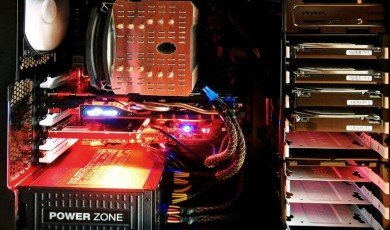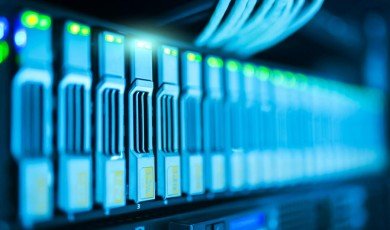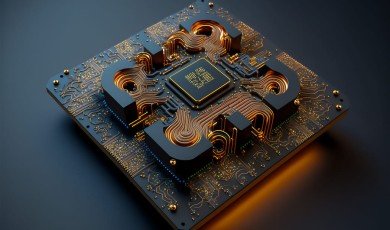
Quantum computing is rapidly shifting from theory to practical reality, and the pace of innovation is being accelerated by advances in artificial intelligence. As quantum processors grow more powerful and complex, AI is stepping in to optimize hardware, streamline research workflows, and make these emerging capabilities accessible to organizations of every size. Today’s most forward-thinking companies are already exploring how intelligent software can help them navigate this new technological frontier and stay ahead of the competition.
While quantum platforms may sound reserved for large laboratories or tech giants, modern AI tools for small businesses are lowering the barrier to entry, enabling lean teams to leverage advanced analytics, automation, and early-stage quantum services without massive budgets or specialist staff.
1. Intelligent Quantum Circuit Design Assistants
Designing efficient quantum circuits is one of the most challenging steps in building reliable quantum applications. AI-driven design assistants use machine learning to analyze huge libraries of existing circuits and optimization patterns. They can automatically suggest gate sequences, reduce circuit depth, and minimize error-prone operations. This drastically cuts the time required to experiment with designs and helps researchers focus on high-value problem-solving instead of repetitive manual tweaks.
For businesses, this means faster prototyping of quantum workflows for use cases such as portfolio optimization, route planning, or advanced simulations. By compressing the learning curve and experimentation cycle, AI-supported circuit design tools make it feasible for non-specialists to explore quantum-enhanced solutions long before they would be able to build deep in-house expertise.
2. AI-Optimized Quantum Error Mitigation
Today’s quantum devices are still noisy and prone to errors, which can distort results if not carefully controlled. AI is increasingly used to model noise patterns, predict error behavior, and recommend correction strategies. Machine learning algorithms can identify subtle correlations in hardware performance data that traditional analytical methods overlook, leading to more accurate compensation techniques.
As quantum machines scale up, manual calibration becomes impossible; AI-driven mitigation will be essential to keep computations trustworthy. Organizations piloting quantum experiments can rely on these intelligent error-control layers to extract meaningful insights from imperfect hardware, making early adoption far more practical and low-risk.
3. Automated Quantum Hardware Calibration and Control
Quantum processors require continuous calibration of qubits, control pulses, and environmental conditions. Historically, this has demanded large specialist teams and extensive trial-and-error. AI-based control systems change this dynamic. They automatically tune parameters, learn from real-time feedback, and adapt to hardware drift, all while improving performance over time.
This automation translates into more stable quantum devices with less downtime and lower operational overheads. In the long term, AI-managed control stacks will be central to running quantum hardware as a dependable cloud service, where users can access quantum resources without needing to understand the complexity under the hood.
4. Hybrid AI–Quantum Algorithms for Real-World Problems
The most promising applications in the near term come from hybrid systems that combine classical AI with quantum accelerators. In these workflows, machine learning models handle data preparation, feature extraction, or decision logic, while quantum routines tackle specific subproblems such as combinatorial optimization or sampling.
Examples include supply chain optimization, risk modeling, advanced recommendation systems, and logistics planning. Hybrid algorithms allow organizations to benefit from quantum-inspired speed-ups even before fully fault-tolerant devices exist. As frameworks mature, companies will increasingly plug quantum-enabled modules into existing AI pipelines, treating them like specialized co-processors rather than standalone systems.
5. AI-Enhanced Quantum Simulation Platforms
Before deploying code to real quantum processors, most developers rely heavily on simulators that run on classical hardware. These simulators are now being supercharged with AI techniques that accelerate computations, intelligently approximate large systems, and highlight promising algorithmic pathways.
AI-guided simulation tools help researchers explore massive parameter spaces, identify performance bottlenecks, and predict how algorithms will behave on future hardware generations. For industry teams, this creates a safer and more efficient environment to test quantum concepts, refine business use cases, and justify investments with data-backed projections.
6. Natural Language Interfaces for Quantum Workflows
One of the biggest adoption barriers is the perception that quantum programming requires deep physics and math knowledge. AI-driven natural language interfaces are steadily removing this obstacle. Using advanced language models, these tools translate plain-language descriptions of problems into structured quantum workflows or code templates.
Developers can describe optimization goals, constraints, or data structures in everyday language and receive runnable quantum circuits, configuration files, or tutorials. This democratization of access will be critical for bringing quantum experimentation to a larger developer base, and it enables smaller organizations to participate without first hiring niche specialists.
7. AI for Quantum Resource Scheduling and Cost Optimization
Access to quantum hardware is increasingly delivered via the cloud, where users pay for limited, high-value compute time. AI-based schedulers analyze job queues, priorities, and performance metrics to allocate resources efficiently and minimize cost. They can predict execution times, route workloads to the most suitable backends, and balance classical-quantum task splits.
This capability is especially important for businesses managing constrained budgets. Intelligent scheduling means teams can run more experiments, reduce idle time, and ensure that quantum runs are reserved for tasks that truly benefit from them. Over time, AI-driven orchestration will become a core component of any robust quantum strategy.
8. Data Management and Security in the Quantum Era
As quantum capabilities advance, so do concerns around data security and cryptography. AI tools are already playing a major role in modeling post-quantum threats, evaluating encryption schemes, and simulating attack scenarios. By fusing AI-driven anomaly detection with quantum-safe cryptography, organizations can design security infrastructures that anticipate tomorrow’s risks.
On the data side, AI systems help categorize and prioritize which information must be protected against long-term quantum decryption threats. This allows businesses to implement staged migration strategies, focusing first on the most sensitive assets while continuously adjusting defenses based on evolving quantum capabilities.
Conclusion: Preparing Your Business for the Quantum–AI Convergence
The intersection of AI and quantum technology is redefining what is possible in computation, optimization, and security. From automated calibration and error mitigation to hybrid algorithms and natural language interfaces, AI is the layer that makes quantum platforms usable, scalable, and strategically valuable.
Companies that begin experimenting now—leveraging AI-driven development environments, simulators, and early access quantum services—will be far better positioned as the hardware matures. You do not need a research lab to participate; you need the right software stack, data strategy, and a willingness to integrate intelligent tools into existing workflows. By adopting AI-powered platforms and building literacy around quantum-ready architectures, organizations of any size can prepare for the coming wave of breakthroughs and turn emerging capabilities into concrete competitive advantage.








